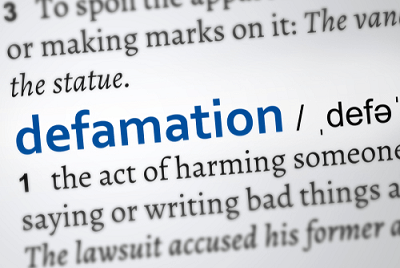Last week, a Manhattan Supreme Court judge dismissed a defamation lawsuit brought by a Black Lives Matter activist against Fox News host Jeanine Pirro. DeRay McKesson claimed the controversial host had defamed him when she accused him of “directing” violence against an injured Louisiana law enforcement officer in December 2017 while on-air. He accused her of expressing a “loud, caustic” opinion over the airwaves.
New York’s Defamation Standard
Under New York law, to prove defamation occurred a party must prove:
A false statement;
- Published to a third party without privilege or authorization;
- With fault amounting to at least negligence;
- Caused special harm or defamation per se.
Generally, statements meant to humiliate and maliciously degrade qualify as defamation. In all states, slander and libel laws differentiate between public and private figures – most notably, in New York public figures must prove the defendant acted with actual malice.
The more public a person’s profile, the higher the burden of proof they much satisfy to proof remarks were defamatory. When deciding a person’s status, New York courts use the “vortex notion” to determine whether a private individual should be considered a public figure – if they have drawn attention or notoriety to themselves, the answer is yes. By voluntarily attracting recognition and fame, they are stuck with their choice just as someone would
If defamation is
Defenses to Defamation Claims
A party accused of defamation in New York may assert any of many recognized defenses to defeat a lawsuit. Defenses include:
- The statement was true;
- Opinion;
- Lack of harm;
- General reporting;
- A wire service defense covering republished news items from a reputable news source;
- Failure to identify the plaintiff; and
- If they are a website operator, a code section exempting them from liability for third-party defamatory statements posted on their platform.
Protected Speech
Pirro argued that she did not defame McKesson – rather, she was merely expressing her opinion that the officer, Baton Rouge Sheriff’s Deputy Nicholas Tullier, had a right to sue McKesson when she was arguing on the air that the activist could be liable for the deputy’s injuries. Justice Robert Kalish sided with Pirro when he threw out the lawsuit, noting that even her own attorney had described her on-air personality as “loud, caustic and hard hitting.” In fact, the decision noted she is known, celebrated, and frequently criticized for her “lack of temperament and caustic commentary” and that nothing she said is outside the bounds of New York law. Thus, however divisive her commentary, Pirra’s expression of her opinion in this manner is protected speech.
Defamation Lawyer in New York
Defamation litigation in New York can be very nuanced depending on the intent of the author, the injuries alleged, the status of the party claiming defamation, and the presence (or lack) of defense present. In these cases, it is advisable to contact an experienced New York litigation attorney to discuss the unique facts of your situation, understand your options, and decide upon the best course of action.

